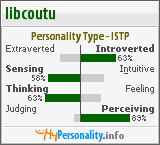I finally did it. Debbie kicked me in the behind and scheduled me to take the GRE back in the winter. I started my first class May 11 and it is complete. One down 11 more to go. Assuming, that is, I make it through this reference class.
I sort of understand the point of the assignments is to make us familiar with reference sources of all types, but I truly don't see the point of beating my head against the wall searching for just the right database to find the answer to a question that can be answered with Google in 30 seconds.
This is the second assignment in which we had to answer 20 questions using only proprietary sources. The instructor wants us to search the library catalog to identify sources which might have the information requested. Then we are to go to the sources and look for the information. At the same time she tells us to search efficiently using controlled vocabularies and subject headings.
I'm sorry, but in my humble opinion this type of search strategy isn't efficient. We have moved way beyond card catalogs and Reader's Guide and static print encyclopedias. The new information world is dynamic, so why are we beating our heads against the wall with static search methods? Yes, I'm frustrated.
This morning I started on this 20 question assignment at about 7:30. I have taken a few breaks throughout the day, but I haven't left the computer for more than 15 minutes at a time. It is now after 5:30 and I still haven't answered all these questions with the proprietary sources we are supposed to use.
To beat it all I finally got into the UK Libguide for reference materials just to see what I might be missing and guess what I found?
Reference Universe: "Unlike your library catalog, which only provides data
about reference works,
Reference Universe shows you what is inside them, searching deeply into the indexes of more than 40,000 electronic and print specialized reference works from over 750 publishers."
Sure enough this search engine gave me one of the answers I have been over an hour looking for. I would never have come up with a pop culture encyclopedia. Besides a search you can browse by title, publisher, subject headings or an index term. The search isn't perfect, but at least it is a move in the right direction. It also doesn't search all the databases I needed to answer the questions I had to answer. Ideally in the future it will.
The library profession should be putting their efforts into improving resources like this that will make searching efficient, rather than trying to justify their salaries and positions by using out-dated methodology.

